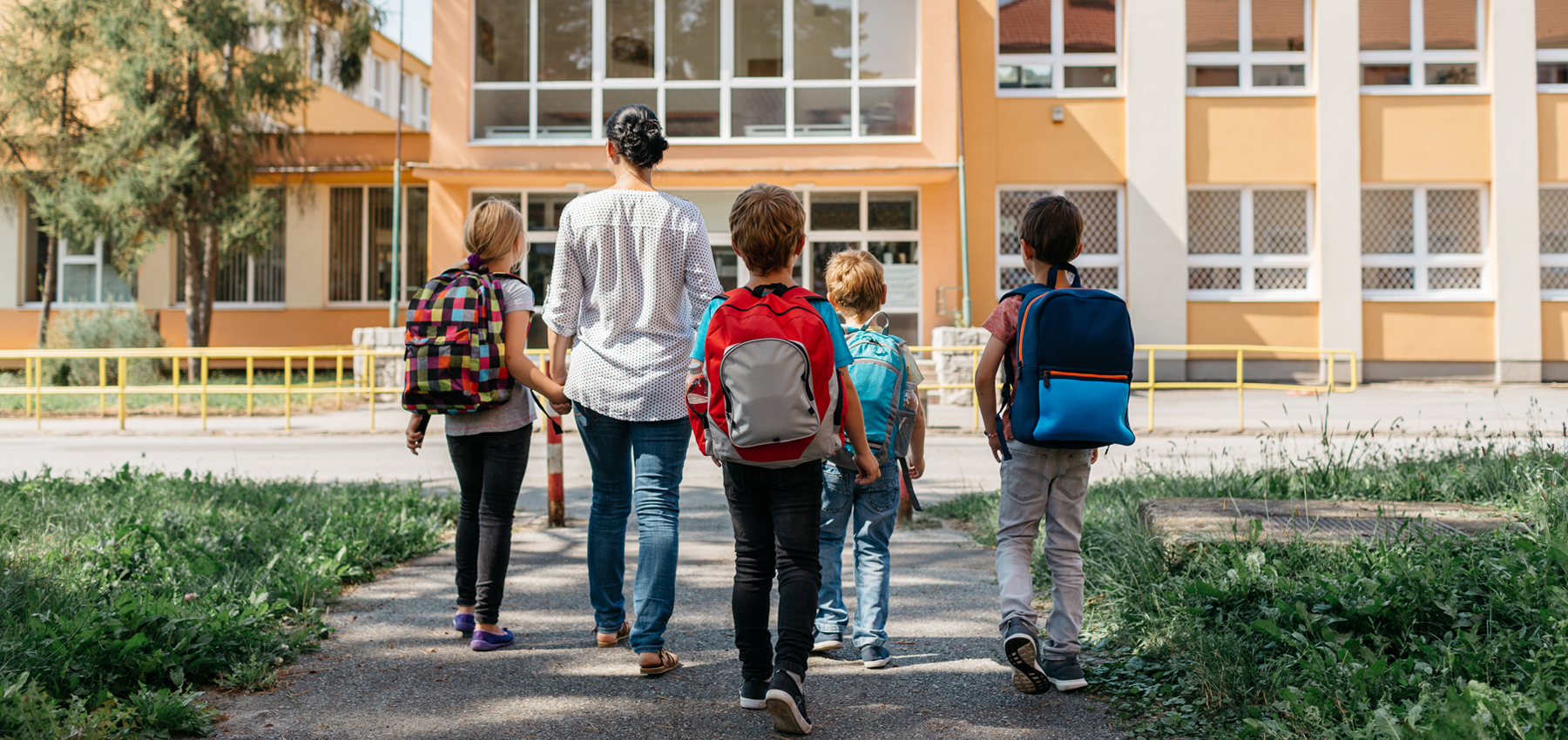Canada is home to many excellent schools for children of all ages. From public schools to private academies, religious schools, and French immersion, there are plenty of options to choose from.
In Canada, most children start kindergarten at the age of four or five, and school becomes mandatory as of grade one, which tends to be around age six. Depending on the province or territory, teens must stay in school until they’re between 16 and 18-years-old. The vast majority of Canadian children complete high school, with many continuing to study at post-secondary universities and colleges.
The Canadian school year typically runs from September through June, and school days are Mondays through Fridays. There are normally short breaks during the winter holidays and mid-spring.
Here’s what you need to know about the different types of schools in Canada, and how to choose the right one for your kids, tweens, or teens.
What types of schools does Canada have and what are their eligibility requirements?
Public schools
Public schools are available in all provinces and territories. All children in Canada are entitled to a free public education, meaning there’s no fee to enroll in these schools. Public schools are available in both official languages, English and French. Canadian public schools tend to serve a particular area within a neighbourhood. This means that the public school(s) your child can attend will depend on where you live.
To enroll your child, tween, or teen in a public school, you must contact your local school board. Some schools experience higher demand than others, so it’s good to do this well in advance to secure your first choice. The school board will assess what grade level your child should start school at, and whether they need free language support in the form of English (ESL) or French classes.
Canada even offers public schools that cater to children with special talents in the arts or athletics, although kids usually must audition to gain acceptance into these programs.
French immersion
Public schools that predominantly teach and encourage non-native French-speaking students to speak in French are commonly called “French immersion schools.” Because Canada has two official languages, tuition-free French immersion programs are accessible to all kids, tweens, and teens, regardless of the language they speak at home. Children who enroll in French immersion schools are expected to become fluent over time and conduct at least half their studies in French. These schools are an excellent way for kids to become bilingual, however they can be challenging for students with below average language skills or those with learning disabilities. French immersion school demand often outstrips available spots. To enroll your child in French immersion, contact your local school board.
Catholic schools
Public Catholic schools are available in the provinces of Ontario, Alberta, Saskatchewan, and all three territories. Outside of these regions, Catholic schools only exist as private schools, which charge tuition. Some public Catholic schools will admit non-Catholic children, although others will require a student to have at least one Catholic parent or grandparent to enroll, or for the student to have received some Catholic sacrements.
In addition to the standard provincial or territorial curriculum, Catholic schools teach religious studies, which are focused primarily on the Catholic belief system. Catholic schools may also require students to wear uniforms, which must be purchased through the school. If needed, many schools offer a gently-used uniform option for students or payment plans.
To enroll your child in a public Catholic school, you must contact your local Catholic school board. To enroll your child in a private Catholic school, you should contact the school directly.
Private and independent schools
A large variety of private and independent schools exist in Canada. These schools charge tuition, either annually or by semester, to attend. However, some private schools offer scholarships for children who either otherwise wouldn’t have the funds to enroll or who display special academic, arts, or athletic abilities. While private schools operate for profit, independent schools are not-for-profit and overseen by an elected board of governors.
Some private schools are day schools, while others are boarding schools, which allow students to live on campus with their peers.
It’s important to note that private and independent schools aren’t necessarily better than public schools. Some are excellent, while others leave something to be desired. If you’re interested in enrolling your kids in a private school, it’s important to do your research about their reputation and whether they can meet your child’s needs. Private and independent schools don’t have as much oversight by provincial and territorial governments and have more leeway to create their own curriculums and standards.
Private school tuition in Canada can cost between $9,000 to $35,000 a year for day students and up to $65,000 for boarding students. These fees don’t include extra services, such as bus transportation, field trip fees, extra-curricular activities, or after-school childcare. To enroll your child in a private school, you should contact the school directly. Some schools require potential students to take tests or attend interviews before deciding whether to admit them.
Homeschooling
Homeschooling is a legal option for kids, tweens, and teens in every province and territory. Each region has its own regulations around homeschooling, and some will even help provide funding for it. If you choose this option for your kids, you’ll still have to meet certain curriculum and learning outcome requirements. Some provinces require regular progress reports or home visits. Because regulations and expectations vary so much by province or territory, it’s important to do your research if you’re interested in homeschooling. More information about homeschooling in Canada can be found here.
Early childhood education
There are many options for starting your child’s education in Canada before it’s legally mandated around age six. Choices range from childcare services at daycares to full-day kindergarten at public schools. While public kindergarten is provided free of charge, other early education services will typically come with a fee.
You may come across Montessori Schools as a popular early childhood education choice in Canada. Montessori schools are private schools, preschools, or daycares that share the belief that loosely structured, play-based learning is best. Rather than offer a set curriculum or method of teaching, Montessori programs let kids lead the way and choose between oral, visual, tactile, and verbal learning. To learn more or enroll, you should contact a provider directly.
Familiarizing yourself with the types of schools available in Canada as well as their offerings, eligibility requirements, and costs is well worth the time to find the right fit for your child, tween, or teen.




